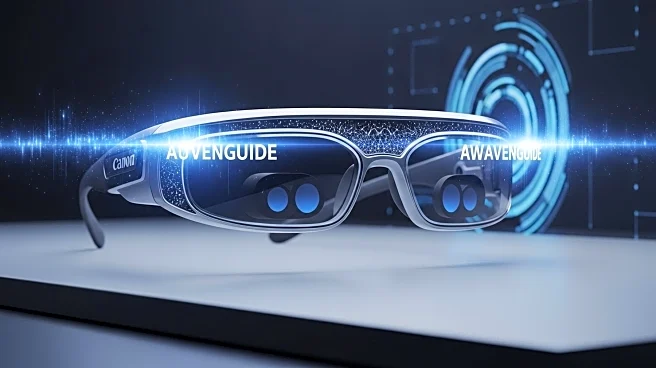What's Happening?
Meta has introduced its Ray-Ban Display glasses, featuring advanced geometric waveguide technology. This technology, developed by Lumus and manufactured by Schott, enhances augmented reality applications by improving optical efficiency and reducing light leakage. The glasses utilize a liquid crystal on silicon (LCoS) projector, reflecting images back to the user's eye through a special lens. Despite the technological advancements, the glasses have a low repairability score, with challenges in finding spare parts beyond the battery. The teardown by iFixit reveals the internal components, including a 960 mWh battery and several PCBs, highlighting the complexity of the device.
Why It's Important?
The introduction of Meta's Ray-Ban Display glasses marks a significant advancement in augmented reality technology. The use of geometric waveguide technology could set a new standard for optical efficiency in AR devices, potentially influencing future developments in the industry. However, the low repairability score raises concerns about sustainability and long-term usability, impacting consumer satisfaction and environmental considerations. The glasses' design and functionality may also affect public perception and acceptance of wearable AR technology, as users navigate the balance between innovation and practicality.
What's Next?
As Meta continues to develop its AR technology, the company may face pressure to improve the repairability and user-friendliness of its devices. Industry stakeholders and consumers will likely monitor the performance and reception of the Ray-Ban Display glasses, influencing future product iterations. Additionally, competitors in the AR space may respond by enhancing their own technologies, potentially leading to increased innovation and competition in the market.
Beyond the Headlines
The development of advanced waveguide technology in Meta's glasses could have broader implications for the AR industry, including potential applications in fields such as education, healthcare, and entertainment. Ethical considerations regarding privacy and data security may arise as AR devices become more integrated into daily life, prompting discussions on regulatory measures and consumer protection.










